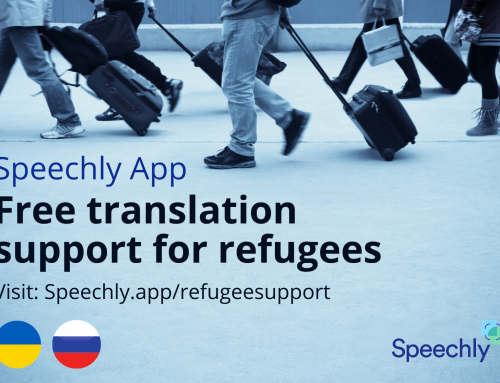2022 will surely go down as one of the most challenging years in UK Border Force history. From airport staff shortages, to the wave of small boats crossing the English Channel, ongoing Brexit delays, COVID issues and of course the Ukraine crisis – the Border Force has been in firefighting mode for months (as assessed by a recent UK government report).
There is no miracle solution to this series of complex challenges. However, one ‘low hanging fruit’ would be to address interpretation issues at the border. At present, the Border Force relies heavily on human interpreters, yet this causes significant bottlenecks, since staff need to wait for interpreters to travel to ports. By using smart translation technology, this particular pinch point can be relieved, and processing can be done a lot faster. Let’s see how.
How translation software supports Border Force staff
Tala is an artificial intelligence powered translation technology which supports simultaneous translation of audio between 45 global languages. By using a smart headset or speaker linked to a phone or computer running the App, UK Borders Force officers can speak in English, for their words to be translated accurately into their interlocutor’s language, and this is played out as audio. The foreign traveller can then speak back in their language, and their speech is instantly translated into English. Much more accurate and nuanced than free online translation services, Tala is also much cheaper than human interpreters – while always being instantly available.
Suggested: What’s going wrong with UK border force interpretation?
How digital translation can help smooth UK Border challenges
The need to wait for interpreters to travel to airports, seaports, or rail terminals to support with interviews, naturally takes up a significant amount of Border Force officers’ time. Rather than simply being able to communicate with travellers, they must wait until an interpreter becomes available. This causes an unnecessary pinch point and takes them away from frontline duties.
Here are just some of the ways that Tala can help the UK Border Force reduce delays:
A sick traveller
While processing new arrivals at passport control, border staff notice a sudden commotion in the queue – a male traveller appears to have fainted. This individual quickly comes around but appears weak and disoriented. He doesn’t speak English, and Border Force staff are struggling to find out what is wrong with him or where he has travelled from.
The team eventually ascertains the man is Senegalese and speaks French. So, rather than waiting for a French speaking interpreter to arrive, they simply pull up Tala on a smartphone and start talking to him. Within moments they discover the man has Type 2 diabetes and has low blood sugar after a long flight. He simply needs a sugary snack and can get on with his journey. Rather than waiting hours for an interpreter to arrive, the problem is solved in minutes.
Ukrainian asylum seeker
A Ukrainian woman and her two small children are present at the UK border. The mother does not speak English, and she appears very distressed. Normally, you would have to accompany her to a waiting area where she would need to wait for a Ukrainian interpreter to become available.
However, with Tala, staff at the border itself can talk to her and soon learn that she has someone waiting for her on the other side. The problem can be solved very quickly, saving time, and avoid unnecessary distress for this young family.
Free support: Use Tala for free to support refugees
A suspicious traveller
A 17-year-old traveller has just arrived on a flight from South America. Looking at their passport, your border officer becomes suspicious. This appears to be the traveller’s first ever international flight, and seems very nervous. He suspects the young traveller could be a drug mule, and so requests to inspect their luggage. However, the traveller cannot speak English and the border guards do not speak Spanish – so an interpreter is required to conduct the interview.
This process could normally take a significant amount of time as you wait for an interpreter to arrive. But, once again, with Tala, the process becomes much faster. The border guard can ask the young traveller questions about the purpose of their journey, request permission to look inside the traveller luggage, and ask about its contents. The inspection can be completed much faster, and all being well the traveller can get on with their journey much faster.
Suspected trafficking victims
Border staff at a seaport are checking the passports of people arriving in the UK on a long distance coach journey from Istanbul. Several of the travellers appear to be teenagers from East Asia. Border staff notice they seem very afraid, and think their passport photos don’t look much like them either – could they be trafficking victims?
Your team ascertain they speak Vietnamese. Rather than waiting for a Vietnamese interpreter to drive down from London to the south coast, they begin speaking to them with Tala to find out who they are and why they are travelling.
£7.5 million – Amount spent on BICS interpreters every year.
Addressing language challenges at the UK Border
There is no simple solution to the UK’s current border challenges – they are complex issues with deep rooted causes. Nevertheless, by investing in technology that can smooth out one particular bottleneck – Border Force interpretation – you can improve the care and wellbeing of travellers and win back several hours of your teams’ time and energy each day.
This has been recently recognised by the Home Office when in June 2022 published a document titled “Interpretation Services and use of Translation Devices” which confirmed the use of electronic translation devices https://www.gov.uk/government/publications/interpretation-services-and-use-of-translation-devices




